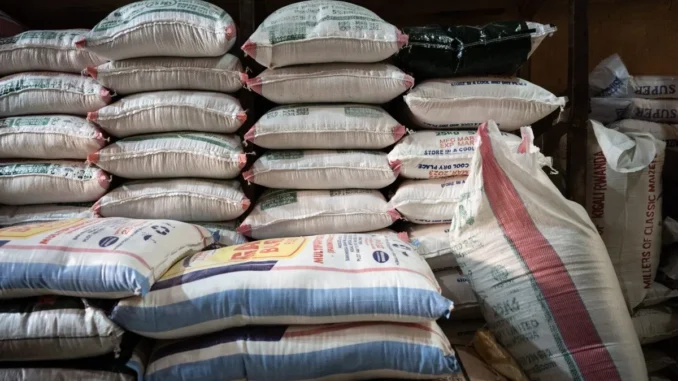
In Rwanda, Moochikal says, it was able to produce above capacity last year.
“The plant’s installed capacity is about 47,000 tonnes. Last year it produced 64,000 tonnes with no fixed asset addition. So, whether it is efficiency or safety track record or machinery or systems, I think we can claim to be the very best.”
Working with farmers
That record also includes good relations with growers, the other critical factor for the success of an agro-based industry. Moochikal says AIF has supported farmers to not only boost production but also to improve the quality of output.
“When we came to Rwanda 10 years ago, 98% of the maize that came to our factory was rejected because of aflatoxin, the biggest problem for African crops, resulting from poor post-harvest treatment. We worked with 200 cooperatives here and today, only 1% of the maize is rejected,” he points out.
Success for the continent’s agriculture sector requires close attention from both governments and private sector actors with an interest in the agricultural output, he emphasises.
“Whoever buys the commodity from these communities must take the responsibility of hand-holding them, taking them through the processes, explaining good agricultural practices. Only then can they succeed. And if these communities succeed, African agriculture will succeed.”
Policy frameworks alone, he stresses, are not enough, especially with the threat of climate change and related weather events.
Investor outreach
Moochikal is confident that AIF’s outreach to investors will also succeed. So far they have received tentative commitments from seven investors of between $20m and $30m each. While he concedes that it is only words on paper at the moment, AIF, he says, is also having positive conversations with the Africa Export-Import Bank and the African Development Bank.
“Before I joined, we were only speaking to the European development banks, which got us nowhere. But we are very happy with the energy and ownership that the AfDB and Afreximbank are showing. Obviously, [for them], we tick all the boxes – children, women, agriculture, farming communities and agro-processing.”
Should its investment drive yield the desired results, Moochikal says AIF would be happy to break out on its own.
“Every company needs a kind of parent at different stages of its evolution and DSM has done a great job as a parent so far, with the technology, support, the credentials, and the people that it brings as a food producer.
But I think the time is now ripe for others with a more commercial outlook in Africa to drive our growth.
It might be better for us as a company to find long term investors who can support our growth faster and wider.”
Kwame Ofori Appiah
